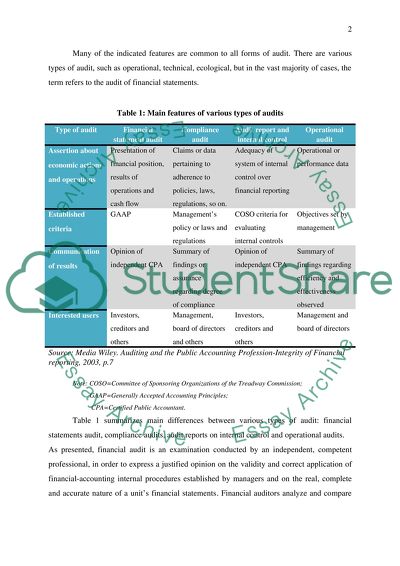Cite this document
(“The Auditing Profession - Accounting vs.Auditing & the Auditing within Essay”, n.d.)
Retrieved from https://studentshare.org/finance-accounting/1397024-the-auditing-proffesion-accounting-vs-auditing-the
Retrieved from https://studentshare.org/finance-accounting/1397024-the-auditing-proffesion-accounting-vs-auditing-the
(The Auditing Profession - Accounting vs.Auditing & The Auditing Within Essay)
https://studentshare.org/finance-accounting/1397024-the-auditing-proffesion-accounting-vs-auditing-the.
https://studentshare.org/finance-accounting/1397024-the-auditing-proffesion-accounting-vs-auditing-the.
“The Auditing Profession - Accounting vs.Auditing & The Auditing Within Essay”, n.d. https://studentshare.org/finance-accounting/1397024-the-auditing-proffesion-accounting-vs-auditing-the.


